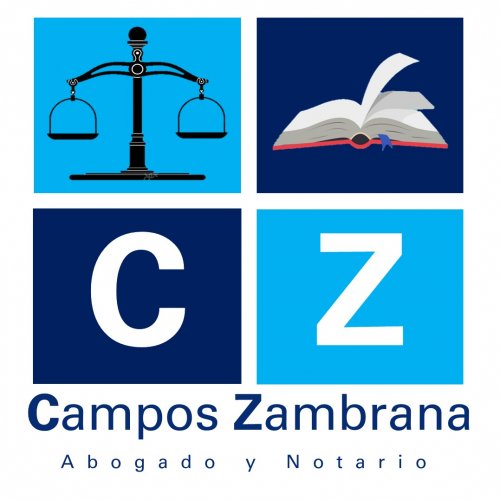Best Employment Benefits & Executive Compensation Lawyers in Nicaragua
Share your needs with us, get contacted by law firms.
Free. Takes 2 min.
Or refine your search by selecting a city:
List of the best lawyers in Nicaragua
About Employment Benefits & Executive Compensation Law in Nicaragua
The field of Employment Benefits & Executive Compensation in Nicaragua encompasses the legal requirements and recommendations related to the compensation packages offered to employees, including salary, bonuses, health benefits, retirement plans, and other incentives. These laws aim to ensure that employees are fairly compensated for their work and that employers adhere to established rules and standards. Nicaragua’s labor laws are influenced by its socio-political history and aimed at protecting worker rights, which includes regulating tangible and intangible benefits offered by employers.
Why You May Need a Lawyer
Obtaining legal advice in the realm of Employment Benefits & Executive Compensation may be necessary for several reasons. Common situations include:
- Negotiating employment contracts and understanding complex compensation packages.
- Disputes regarding the calculation and distribution of bonuses and commissions.
- Legal issues related to pension plans and retirement benefits.
- Ensuring compliance with Nicaraguan labor laws and regulations.
- Resolving conflicts over termination packages or severance pay.
- Assistance during mergers or acquisitions, focusing on executive compensation alterations.
Legal professionals can help navigate complex legal frameworks, ensure compliance, and protect individuals' or companies' interests during negotiations or disputes.
Local Laws Overview
Nicaragua’s legal framework for employment benefits and executive compensation incorporates regulations intended to safeguard employee rights while promoting fair business practices. Some key aspects include:
- Minimum Wage Laws: Established minimum wages that vary depending on industry and region.
- Severance and Termination: Legal provisions that require payment of severance pay based on duration of employment.
- Social Security Contributions: Mandatory contributions to Nicaragua's social security system which provides healthcare and pension benefits.
- Worker Benefits: Regulations pertaining to overtime, annual leave, and health benefits.
- Executive Compensation: Less regulated compared to general employee compensation, but must adhere to broad labor standards and anti-discrimination laws.
Employers in Nicaragua are expected to meet these legal requirements and provide competitive packages to attract and retain talents.
Frequently Asked Questions
What constitutes a fair executive compensation package in Nicaragua?
Fairness in executive compensation is determined by market comparisons, company performance, and alignment with organizational goals. Packages often include base salary, bonuses, stock options, and additional benefits.
Are there specific laws for executive compensation in Nicaragua?
While specific laws for executive compensation are not as detailed as those for regular employee compensation, general employment laws such as non-discrimination and tax regulations do apply.
What is the process for challenging unfair termination or severance packages?
Employees can file a claim with the Ministry of Labor or pursue legal action through the courts to challenge unfair termination or severance packages. Legal counsel is recommended in such cases.
How are pension and retirement plans regulated?
Retirement plans are primarily regulated by social security laws, requiring employers to make contributions to the national pension system on behalf of their employees.
What are the required health benefits employers must provide?
Employers must provide access to healthcare benefits as part of their social security contributions. Additional private health insurance is often negotiated in employment contracts.
How are bonuses and commissions typically handled?
Bonuses and commissions are usually outlined in employment contracts and are subject to mutual agreement between the employer and employee. They must comply with labor laws and fiscal policies.
Can executives negotiate personalized compensation packages?
Yes, executives often have the ability to negotiate personalized compensation packages that may include supplemental bonuses, esoteric benefits, or tailored retirement plans.
What tax implications should be considered with executive compensation?
Compensation packages, particularly stock options and bonuses, are subject to income tax in Nicaragua. Proper structuring and advice are essential to minimize tax liabilities.
What legal protections exist for whistleblowers regarding executive compensation fraud?
Nicaraguan law provides some protections for whistleblowers, although further enhancement and enforcement mechanisms may be advocated through legal assistance.
How can expatriates employed in Nicaragua ensure compliance and fair compensation?
Expatriates should secure specialist legal advice to negotiate contracts that respect both Nicaraguan law and any applicable international agreements.
Additional Resources
Individuals seeking further assistance or additional information can refer to the following resources:
- Ministry of Labor (Ministerio del Trabajo) - Provides oversight and resources about labor rights and laws.
- National Social Security Institute (Instituto Nicaragüense de Seguridad Social) - Offers information on social security contributions and benefits.
- Legal Aid Services - Various NGOs and legal service providers offer assistance with employment-related legal issues.
Next Steps
If you require legal assistance in the field of Employment Benefits & Executive Compensation in Nicaragua, consider these steps:
- Identify your specific legal needs and gather relevant documentation.
- Consult with a lawyer specialized in labor law and executive compensation to discuss your case.
- Ensure you understand your rights and obligations under Nicaraguan law.
- Negotiate or draft employment contracts or compensation agreements with legal guidance to ensure fairness and compliance.
- Should any disputes arise, follow the legal process advised by your counsel, which may include mediation, negotiation, or litigation.
Lawzana helps you find the best lawyers and law firms in Nicaragua through a curated and pre-screened list of qualified legal professionals. Our platform offers rankings and detailed profiles of attorneys and law firms, allowing you to compare based on practice areas, including Employment Benefits & Executive Compensation, experience, and client feedback.
Each profile includes a description of the firm's areas of practice, client reviews, team members and partners, year of establishment, spoken languages, office locations, contact information, social media presence, and any published articles or resources. Most firms on our platform speak English and are experienced in both local and international legal matters.
Get a quote from top-rated law firms in Nicaragua — quickly, securely, and without unnecessary hassle.
Disclaimer:
The information provided on this page is for general informational purposes only and does not constitute legal advice. While we strive to ensure the accuracy and relevance of the content, legal information may change over time, and interpretations of the law can vary. You should always consult with a qualified legal professional for advice specific to your situation.
We disclaim all liability for actions taken or not taken based on the content of this page. If you believe any information is incorrect or outdated, please contact us, and we will review and update it where appropriate.
Browse employment benefits & executive compensation law firms by city in Nicaragua
Refine your search by selecting a city.










